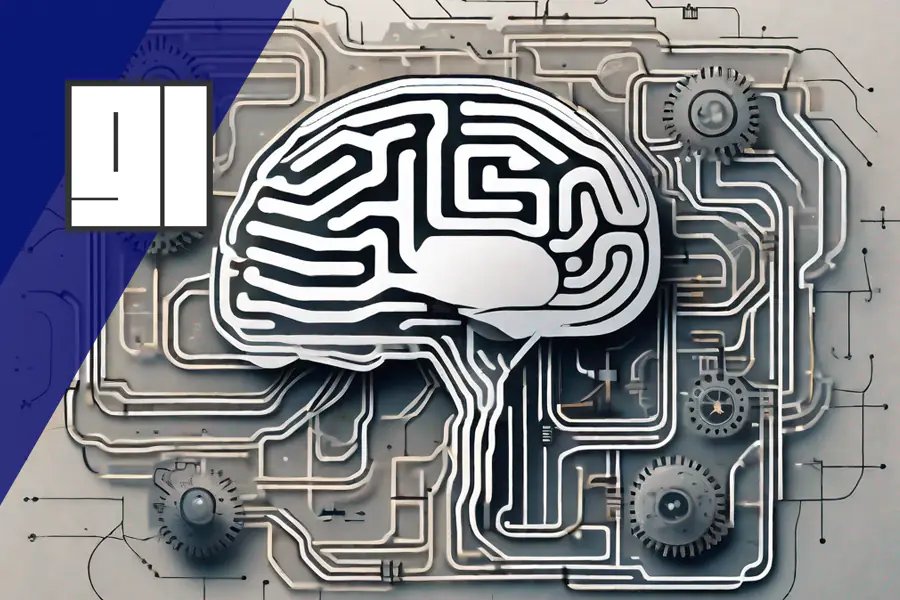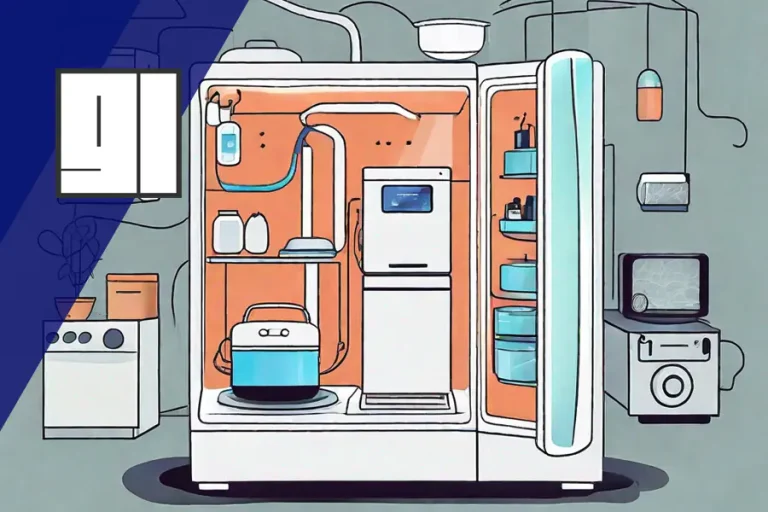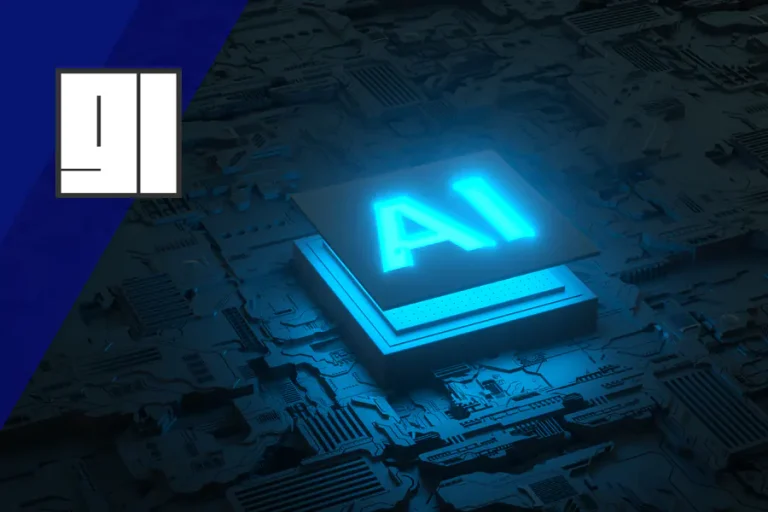Challenges & Limitations of Current AI Technology
Artificial Intelligence (AI) has emerged as one of our most promising and transformative technologies. It can potentially revolutionize various industries and improve how we live and work. However, like any technology, AI also comes with its fair share of challenges and limitations that must be addressed.
Understanding AI: A Brief Overview
Before we can uncover the challenges and limitations of AI, it is essential to have a basic understanding of what AI is. Artificial Intelligence refers to the development of computer systems that can perform tasks that typically require human intelligence. These tasks include learning, reasoning, problem-solving, and understanding human language.
The evolution of AI technologies has been remarkable over the years. From its beginnings as a concept in the 1950s, AI has progressed significantly thanks to advancements in computer processing power, algorithms, and data availability.
One key factor that has propelled the development of AI is the exponential growth in computer processing power. In the early days, computers were limited in their capabilities, with processing power that pales compared to today’s machines. However, with the advent of more powerful processors and the miniaturization of computer components, the computational capacity of AI systems has skyrocketed.
Another crucial aspect that has contributed to the advancement of AI is the development of sophisticated algorithms. These algorithms are the building blocks of AI systems, allowing them to process vast amounts of data, recognize patterns, and make intelligent decisions. Over the years, researchers and engineers have continuously refined these algorithms, making them more efficient and accurate.
Furthermore, the availability of massive amounts of data has played a pivotal role in the progress of AI. With the rise of the internet and the proliferation of digital devices, data has become more abundant than ever. This abundance of data has enabled AI systems to learn from real-world examples and improve their performance over time.
As AI technology has advanced, it has been applied to various domains and industries. From healthcare and finance to transportation and entertainment, AI has found its way into various sectors, revolutionizing how tasks are performed, and problems are solved. For example, in healthcare, AI-powered systems can analyze medical images, detect diseases, and assist in diagnosis, leading to improved patient outcomes.
While AI has made significant strides, it has challenges and limitations. One of the primary challenges is the ethical implications of AI. As AI systems become more autonomous and capable of making decisions, questions arise about accountability, bias, and the potential for unintended consequences. Ensuring that AI is developed and deployed ethically and responsibly is critical.
Another limitation of AI is its inability to understand context and common sense reasoning truly. While AI systems can excel at specific tasks, they often struggle when faced with real-world scenarios that require a deep understanding of context and the ability to apply common sense. This limitation poses challenges in areas such as natural language processing and decision-making.
Despite these challenges and limitations, the future of AI holds immense potential. As technology advances, AI systems will become more sophisticated, capable, and integrated into our daily lives. The possibilities for AI are vast, ranging from self-driving cars and personalized virtual assistants to advancements in healthcare and scientific research.
In conclusion, AI is a rapidly evolving field that has the potential to reshape various aspects of our society. Understanding the foundations of AI, its progress over the years, and its challenges and limitations is crucial for navigating our increasingly AI-driven world.
The Promises of AI: Potential and Progress
Artificial Intelligence (AI) has emerged as a groundbreaking technology with the potential to revolutionize various industries, ranging from healthcare and finance to manufacturing and transportation. AI’s transformative capabilities promise to enhance efficiency, accuracy, and productivity, leading to significant cost savings and improved decision-making processes.
In healthcare, AI has the potential to bring about remarkable advancements. Healthcare professionals can utilize AI systems to analyze vast amounts of medical data by leveraging machine-learning algorithms and deep-learning neural networks. These systems can recognize intricate patterns, identify potential risks, and accurately predict patient outcomes. This newfound capability can empower medical practitioners to make well-informed decisions, improving patient care and treatment outcomes.
Furthermore, the finance industry stands to benefit greatly from the advancements in AI technologies. With the ability to process and analyze vast volumes of financial data, AI systems can provide invaluable insights to financial institutions. These insights can help identify trends, detect anomalies, and predict market fluctuations, enabling businesses to make informed investment decisions. Additionally, AI-powered chatbots and virtual assistants can enhance customer service experiences by providing personalized recommendations, answering queries, and assisting with financial planning.
The manufacturing sector, too, is witnessing the transformative potential of AI. Manufacturers can optimize operations and increase efficiency by incorporating AI technologies into production processes. AI-powered robots and automated systems can perform complex tasks with precision and speed, reducing the risk of errors and improving overall productivity. Additionally, AI systems can monitor and analyze data from sensors and other sources in real-time, enabling proactive maintenance and minimizing downtime.
Transportation is yet another industry that stands to benefit from AI. With the advent of self-driving vehicles, AI has the potential to revolutionize the way we travel. Autonomous cars and trucks can enhance road safety, reduce traffic congestion, and improve fuel efficiency. AI-powered transportation systems can also optimize routes, predict demand, and provide real-time traffic updates, making commuting more convenient and efficient.
Recent advancements in AI technologies have propelled its progress to unprecedented heights. Integrating machine learning algorithms, deep learning neural networks, and natural language processing techniques has enabled AI systems to analyze vast amounts of data, recognize complex patterns, and make predictions with remarkable accuracy. This progress has opened up new possibilities and avenues for AI applications, paving the way for a future where AI plays a pivotal role in transforming industries and shaping our daily lives.
The Challenges of AI Technologies
Despite the rapid progress, AI technologies face various challenges that must be overcome for widespread adoption. The technical challenges in AI development include the need for high-quality data, computational power, and efficient algorithms. Developing AI systems that can learn from limited data and adapt to dynamic environments remains a significant challenge.
Researchers and developers are constantly exploring new ways to collect and curate datasets to address the need for large amounts of high-quality data. They are collaborating with various organizations and institutions to gather diverse and representative data that can be used to train AI models. This involves collecting data from different sources and ensuring that the data is labeled accurately to avoid biases and inaccuracies in the training process.
Moreover, the demand for computational power in AI development is ever-increasing. Training advanced AI models requires significant computational resources, including powerful processors and high-performance computing clusters. Researchers are continuously optimizing algorithms and developing hardware accelerators to improve the efficiency of AI computations. They are also exploring distributed computing frameworks to distribute the computational workload and speed up the training process.
Another technical challenge in AI development is the creation of efficient algorithms. AI systems must process and analyze vast amounts of data quickly and accurately. Researchers are constantly developing new algorithms and techniques to improve the efficiency and accuracy of AI models. This involves exploring approaches, such as deep learning, reinforcement learning, and transfer learning, to find the most suitable algorithms for different AI applications.
While addressing the technical challenges is crucial, ethical challenges in AI implementation are also crucial. Ensuring that AI systems are fair, transparent, and accountable is crucial to prevent biases, discrimination, and unethical use of AI. Researchers and policymakers are actively developing guidelines and regulations to govern the ethical use of AI technologies.
One of the ethical challenges in AI implementation is the issue of fairness. AI systems can inadvertently perpetuate biases in the data they are trained on, leading to discriminatory outcomes. Researchers are developing methods to detect and mitigate AI model biases, such as fairness metrics and bias-correction techniques. They are also working on making the decision-making process of AI systems more transparent so that users can understand how and why certain decisions are made.
Maintaining privacy and data security in AI applications is another challenge that needs to be addressed to build trust among users. AI systems often require access to sensitive user data, such as personal information and browsing history, to provide personalized services. Ensuring that this data is protected and used responsibly is crucial. Researchers are exploring techniques such as federated learning, which allows AI models to be trained on decentralized data without compromising privacy.
In conclusion, while AI technologies have significantly advanced, they face various challenges. Overcoming the technical challenges of data, computational power, and algorithms is essential for further progress. Additionally, addressing the ethical challenges of fairness, transparency, and privacy is crucial to ensure AI technologies’ responsible and ethical use.
The Limitations of Current AI Technologies
While AI has shown immense potential, it also has inherent limitations that must be considered. AI technologies are only as good as the data they are trained on. If the data used to train an AI system is biased or limited, the system’s outputs may be flawed or discriminatory. AI systems also struggle with abstract reasoning, common-sense understanding, and context-dependent decision-making, which humans excel at.
Practical limitations in AI applications include the need for human oversight and intervention, especially in critical fields like healthcare. AI systems may provide accurate predictions or recommendations, but the final decision-making should involve human judgment and expertise. Additionally, the high cost of AI implementation and the potential for job displacement raises concerns about its wide-scale adoption.
Case Studies: AI Challenges and Limitations in Real-World Scenarios
Examining AI challenges and limitations in real-world scenarios can provide valuable insights into its impact across industries. AI promises advancements in diagnosis, treatment, and personalized medicine in healthcare. However, challenges such as data interoperability, legal and ethical considerations, and the potential for misdiagnosis must be addressed.
In the business realm, AI offers automation, intelligent analytics, and customer personalization opportunities. However, challenges such as integrating AI with existing systems, ensuring data quality and security, and addressing job displacement concerns remain significant hurdles.
AI in Healthcare: Promises and Pitfalls
AI applications in healthcare have the potential to enhance patient care, improve diagnostics, and streamline administrative processes. Machine learning algorithms can analyze medical data and identify patterns to assist in accurate diagnoses and treatment recommendations. However, challenges like data privacy, regulatory compliance, and the potential for AI to replace human judgment need careful consideration.
AI in Business: Opportunities and Obstacles
AI technologies enable automation, optimization, and predictive analytics in the business landscape. AI-powered chatbots and virtual assistants enhance customer experiences, while machine learning algorithms provide insights for better decision-making. Nonetheless, challenges such as the need for skilled AI talent, ethical considerations, and addressing the digital divide pose obstacles to full AI integration.
In conclusion, while AI technologies hold immense promise, they also present challenges and limitations on their path to widespread adoption. Addressing technical challenges, ensuring ethical implementation, considering limitations, and understanding real-world case studies will enable us to harness the full potential of AI and overcome its limitations. With careful consideration and continuous innovation, AI can be a transformative technology that brings about positive change in our world.

Graz is a tech enthusiast with over 15 years of experience in the software industry, specializing in AI and software. With roles ranging from Coder to Product Manager, Graz has honed his skills in making complex concepts easy to understand. Graz shares his insights on AI trends and software reviews through his blog and social media.







